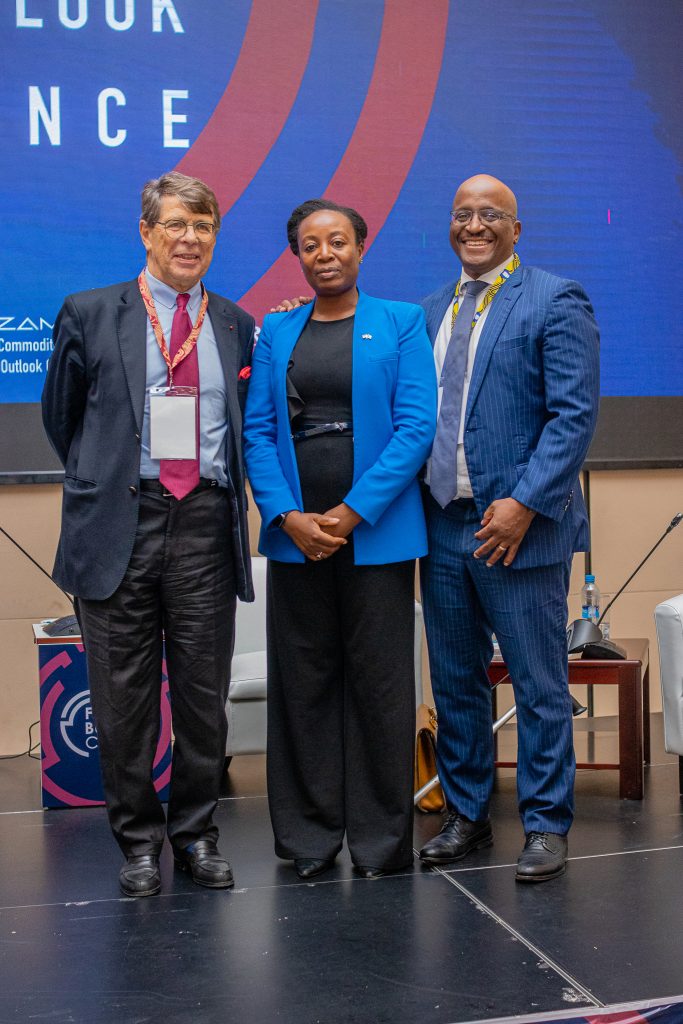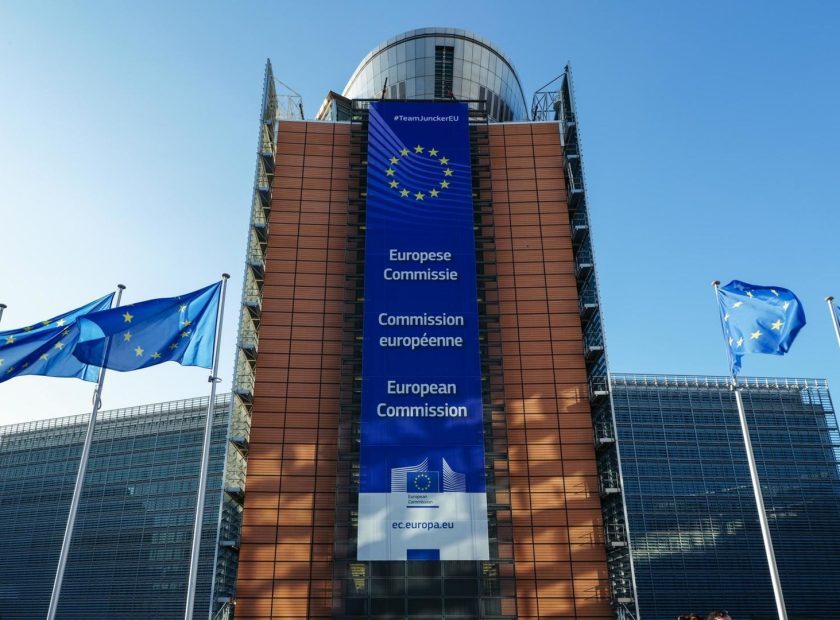On 5 December 2023, the Mulungushi International Conference Centre hosted the Zambia Commodities Market Outlook Conference in nation’s capital, Lusaka. Organised by the French Business Circle, it provided a forum for experts and stakeholders to explore the economic trajectories influencing Zambia’s future. Ceaser Siwale, Chief Executive Officer of Pangaea Securities and Co-Founder of The Critical Minerals Fund, was invited to speak as well as take the role of moderator for the panel session during the conference.
Global Economic Challenges and the Metals Market
The keynote speech by Prof. Philippe Chalmin, a French liberal historian and economist, and one of the world’s leading specialists on commodity markets, set the tone by spotlighting challenges confronting the EU, with Germany facing economic turbulence caused by industrial and energy crises. China, a historical economic powerhouse, is undergoing a transition with recent years exhibiting a decline, attributed partially to its zero-COVID policy and lagging industrial production. Meanwhile Africa must contend with an economic growth rate of 3.6% which lies below its demographic growth rate.
The conference explored the intricate role of commodities as potential weapons in geopolitical conflicts, examining the leveraging of natural gas, oil, and agricultural products. Global shocks—from the COVID pandemic to the recent Ukraine war—have further increased the volatility of commodity markets.
Detailed insights into the metals market highlighted price surges and price drops predominately in the electric metals that are interchangeable, such as cobalt, nickel, and lithium. Copper, vital to the energy transition, remains stable, with demand expected to double by 2050 whilst supply continues to lag behind due to limited levels of exploration and production today. Copper will continue to be an essential metal in the energy transition journey and should be an anchor for investments in electric metals. Zambia and the Democratic Republic of Congo (DRC) emerged as potential mining players, albeit facing challenges.

Zambia's Economic Potential and Sectoral Perspectives
Prof. Chalmin emphasised the need for Zambia to avoid the “commodity curse” by achieving equilibrium between agriculture, industry, and services. Despite Africa’s current economic growth rate being inadequate to support its growing population, Zambia’s political stability and commodity wealth position it as one of the continent’s economic contenders.
Cesar Siwale, in moderating the panel discussion, steered conversations on Zambia’s economic outlook. Dr. Johnstone Chikwanda, a key Zambian energy sector and oil industry consultant discussed Zambia’s energy sector, highlighting new policies that attract investments, particularly in renewables. Dr. Carl Irwin highlighted the pivotal role of agriculture, stating that he believes it is more critical for Zambia than mining. While Mr. Anthony Malenga, Country Manager of Barrick Lumwana Mining Company, represented the mining sector, emphasising the transformative potential the mining sector has for the Zambian economy. He mentioned key factors such as logistics, energy supply, and the empowerment of artisanal miners. All panellists emphasised the importance of ESG, sustainability and decarbonisation but also advocated for Africa to be provided practical alternative solutions due to the energy challenges, social-economic pressures, and limited access to finance that the continent faces.
Challenges and Opportunities
The conference concluded with discussions on decarbonization challenges, the potential for in-country value addition, and the complications arising from some of the restrictive measures placed on developing nations in line with the transition. Prof. Chalmin, responding to a question from Cesar Siwale, made reference to the fact that Africa is in a position to challenge the West, as the main protagonists, to finance Africa’s transition, emphasizing the world’s collective need for African development.
The Zambia Commodities Market Outlook Conference offered a nuanced view of the challenges and opportunities shaping Zambia’s economic trajectory, highlighting the intricate interplay of global geopolitical, climatic, and economic forces and regional potential.






